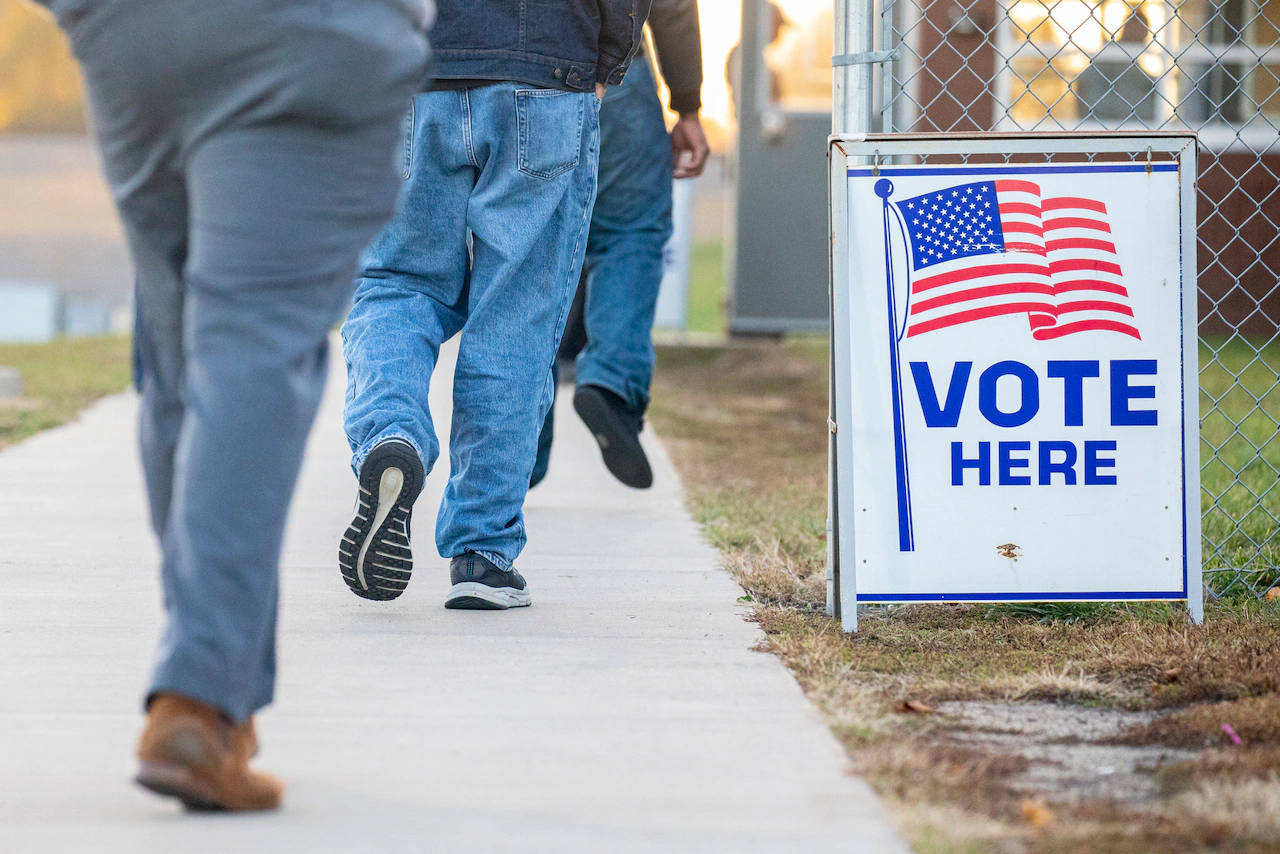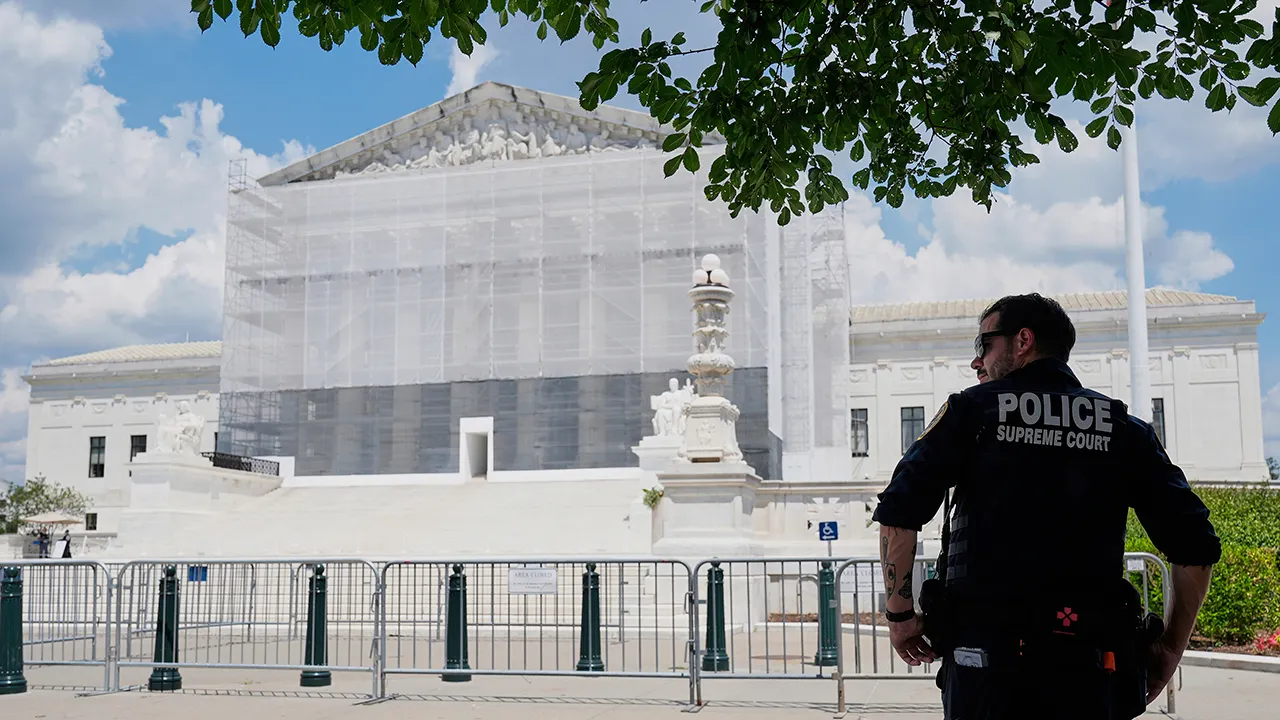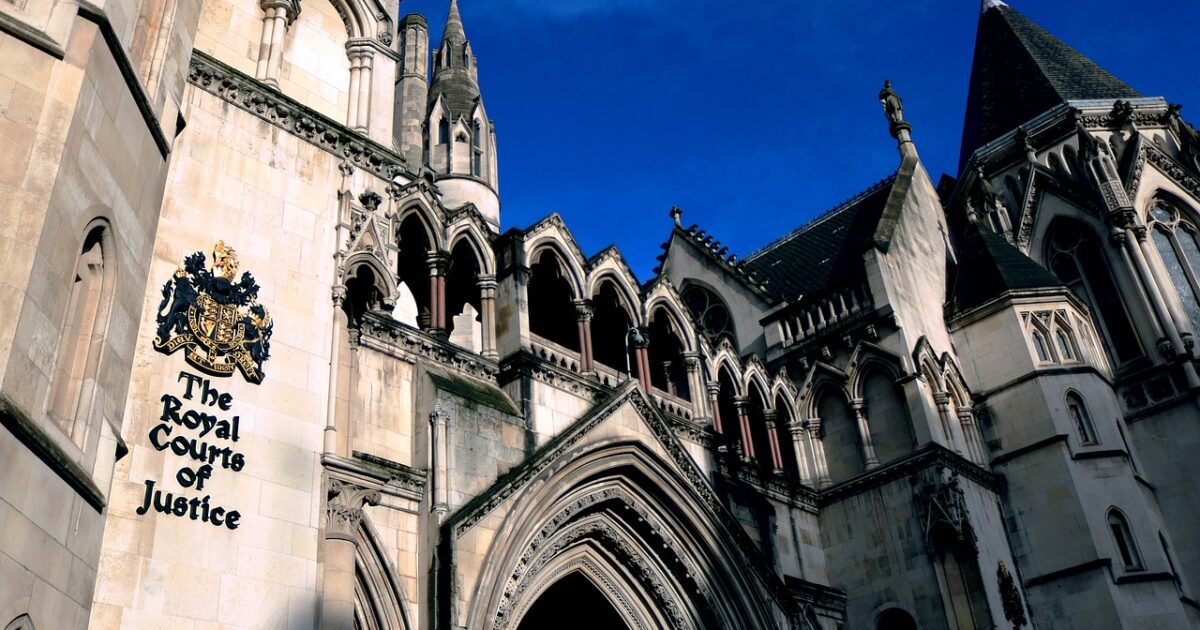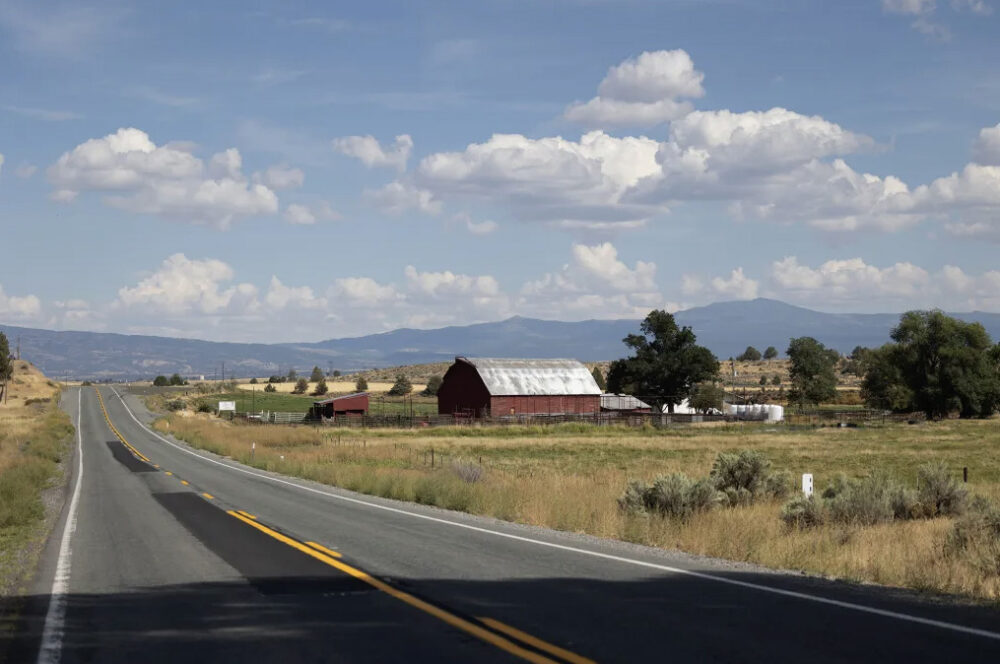Copyright modernghana

Recently, US President, Donald Trump, floated a controversial proposal to come “secure” the Christian population in Nigeria from alleged genocide by Muslim fundamentalists. That offer exposed more than just a diplomatic overture. It laid bare the frailty of a country that had gradually become the theatre of fear, mistrust, and political deceit. Trump happened because it was no longer news that insecurity had continued to fester across Nigerian states as their social fabric tore each day, and the very notion of One Nigeria, long repeated like a sacred incantation, had begun to vibrate on shaky ground. Every Nigerian knows that the country is not at peace, that the country is at war with itself. From Zamfara to Plateau, Benue to Imo, Rivers to Kaduna, hardly a state can claim freedom from the grip of violence. Bandits, kidnappers, insurgents, herdsmen, and separatist militias have all replaced the state as the ultimate authority in large swaths of territory. Ordinary citizens live as prisoners of fear, unsure if they would return home safely from their workplaces at the end of the day, for fear of bandits and kidnappers. And when the citizens' primary demand for security of life and property remains hugely unmet by their government, that government can be rightly said to have lost its moral right to rule. But not in today's Nigeria. In today's Nigeria, faith has become both the refugee and the flashpoint. Nigerian Christians continue to raise alarms over targeted killings, Church attacks, and forced conversions. Even the very idea that a foreign leader like Donald Trump could publicly promise to come protect them speaks volumes about the collapse of domestic confidence in Nigeria’s own democratic institutions. If a significant portion of the population believes that safety lies outside the country’s own sovereign structures, then the citizens have definitely lost confidence in the capability of their government. The relationship between them and their government is no longer built on trust but on fear. But truth be told: the problem challenging Nigeria is much deeper than religious insecurity. Nigeria is suffering from an identity crisis that runs through its political, economic, and demographic foundations. Take the country’s last credible population census for example. It took place in 2006, nearly two decades ago. Since then, politicians have continued to govern blindly, sharing oil revenues and allocating political representation without knowing how many citizens actually exist, where they live or what they do for a living. Every projection of Nigeria’s population, whether it is 180 million or 220 million, remains an estimate, at best. This vacuum of knowledge has continued to encourage unhealthy regional competition to fester in the country as states relentlessly struggle over federal financial allocations. A nation that cannot adequately count its people cannot claim to know them. And a nation that does not know its people cannot govern them justly. The absence of accurate demographic data means that every development plan is guesswork and every election, to a great extent, a gamble. This is why trust in institutions continues to erode even as the political elites in public offices recycle their empty promises of reform. A major fact Nigerians should take into serious consideration is that in 1914 when Lord Frederick Luggard, the then Governor-General of what became known as Nigeria, decided for administrative convenience to merge the Northern and Southern Protectorates into one entity, no Nigerian was consulted in that exercise. No referendum was held. No plebiscite gave the people a say in whether they wished to live together or not. What emerged was not a nation but a geographic contraption, bound by colonial interest rather than the collective consent of peoples and tribes being merged. Over a century later, Nigerians have still continued to live under the shadow of that unconsented union. And as a result, socio-economic problems have never stopped challenging the status quo. The northern region had evolved under a feudal system that valued hierarchy, obedience to the ruling class, and emirate authority. The south, by contrast, grew into a more republican space, driven by trade, education, and political activism. When independence arrived in 1960, these two dissenting civilizations were expected to function seamlessly as a unitary confederation. But they never truly did, largely because politics at the time was driven by tribal sentiments and the politicians had no vision of evolving a national spirit in practice. The differences in the value systems of the feudal north and the republican south became the undercurrent of every national crisis, from the 1966 coups to the civil war and from the Sharia debates of the 1970s to resource-control agitations. Politicians tried to patch over these contradictions with slogans of unity and a quota system of convenience, but the core tension remained unresolved. Across the decades, the promise of “One Nigeria” was tested over and over again. But even as I write this today, it still appears increasingly untenable. From the East, renewed calls for self-determination by groups who feel betrayed by the federal structure have continued to ring. In the Delta, frustration has continued to simmer over resource exploitation and environmental neglect. In the West, some elite voices of the academia have continued to whisper about an Oduduwa nation, weary of carrying the burden of a federation that never reforms anything that needs to be reformed. Even in the North, certain communities have continued to resent their marginalization within the very region that claims political dominance. Some are agitating for a break with the rest of the country to enable them rule an Arewa Republic with full, unadulterated Sharia Laws. These agitations are not simply noise from the fringes; they are the forlorn cries of Nigerian citizens who no longer believe that "One Nigeria" serves their interests, because it actually does not. Instead it serves the grabbing, looting interest of the wealthy, the high and mighty in the country who command the armed forces. When a union demands loyalty but offers little justice, secession becomes a language of survival. And the people of Nigeria must survive all of this. Yet Nigeria’s ruling class treats every such agitation as treason rather than a symptom of the deeper disease. For the Nigerian government, it is easier to deploy soldiers than to deploy understanding and empathy. It is easier to suppress protests than to address grievances. But repression only delays the inevitable reckoning. The bitter truth is that the unity of Nigeria cannot be sustained by force or emotion. It must rest on the free will of the citizens. That is why President Bola Ahmed Tinubu must summon the courage now to conduct a plebiscite. Let Nigerians, at the long last, decide whether they wish to continue as one federation or pursue separate paths under the aegis of ECOWAS and the African Union. Such a process would not be an act of division but of democratic honesty. For once, citizens would be treated as adults capable of choosing their own destiny rather than as slaves bound by a colonial decree from which they cannot extricate themselves. A plebiscite would clarify, not confuse the Nigerian dilemma. It would ask in plain terms whether Nigerians want to remain together and, if so, under what conditions. It would allow regions to express whether they prefer greater autonomy within a restructured federation or full independence under international law. It would invite every community, every ethnic group, every religious minority, and every age-grade bracket to participate in the conversation about their collective future. The exercise would not only measure unity, it would renew legitimacy. Critics will always say that such a move could be risky, that it could ignite tensions, disrupt the economy, and invite chaos. But the greater risk lies in doing nothing. The truth is that a union that survives only by force and not the will of the people is a union already smeared in slavery. If the people’s desire for self-determination is ignored, it will one day erupt in violence. The world has learned that lesson from the Sudan, Ethiopia, France, and Yugoslavia among others. Nigeria should learn it too, while it still has time to choose the path of peace. The plebiscite, if properly organized, would be more than a yes-or-no question. It would be an opportunity to redesign the architecture of the country. If Nigerians vote to remain one, then that choice must be respected. It must be accompanied by reforms that make unity meaningful—true federalism, equitable resource control, local security autonomy, and transparent governance. If they vote otherwise, then that choice must also be respected. And separation must follow a lawful, negotiated path that protects lives, property, and economic stability. Either way, the outcome would represent consent rather than an illegitimate imposition that borders on enslaving the citizens and denying them even the most fundamental right of self-determination. For this to happen, certain steps are essential. The federal government must first conduct a credible census. The National Population Commission has already indicated that it cannot fix a date without a Presidential approval. President Tinubu must grant that approval and ensure that the process is transparent, digital, and verifiable. Without reliable population data, a plebiscite would lack credibility. Next, an independent electoral and constitutional commission should be established to frame the questions, monitor the voting, and certify the results. International observers from ECOWAS, the African Union, and the United Nations should be invited to lend legitimacy. Civil society organizations, religious leaders, traditional institutions, and the media must all play vital roles in the civic education of voters, to prevent misinformation. President Tinubu must also demonstrate political will. History offers few occasions when a leader can rise above partisan survival to embrace the call to statesmanship. This is one such occasion. The President must make it clear that the plebiscite is not a whistle on his administration but on the future of the Nigerian project. He must guarantee that whatever the outcome, his government would respect it. Such courage would place him among the few African leaders willing to trust their people’s judgment. Of course, some might argue that Nigeria’s unity is non-negotiable. That is a fat lie. Nothing in history is truly non-negotiable. Even the most powerful empires crumble when they outlive their moral foundations. The question should not be whether Nigeria can stay united or not, but whether Nigerians still want to stay united or not. Patriotism cannot be legislated, it must be felt. And it is difficult to feel patriotic in a country that fails to protect or fairly represent its citizens well. And so, the President and all stakeholders in the Nigeria Project must understand and appreciate that the purpose of a plebiscite is not to destroy Nigeria but to rebuild it on firmer ground. Unity, if freely chosen, becomes stronger. Diversity, if respected, becomes a source of strength rather than division. A new social contract could emerge, that reflects the consent of the governed rather than the convenience of the governing. That would be the true rebirth of Nigeria, not a continuation of its inherited contradictions. Inaction, on the other hand, guarantees more of the same: worsening insecurity, growing distrust, vanishing opportunities, and unending emigration. So far, the country’s best minds have continued to flee abroad, while those who remain oscillate between despair and defiance. The gap between rulers and ruled widens with each scandal of corruption, each unpunished atrocity, each election that mocks the will of the people. At some point, the collective illusion of nationhood will give way to raw survival instincts as it once did in South Africa during the Apartheid regime, and then the collapse of the rogue system will no longer be theoretical. Nigeria has reached that point where silence is complicity. The myth of eternal unity has served the political class well. It has allowed them to loot the national treasury under the pretext of national interest. But ordinary Nigerians owe them no such loyalty. They deserve to know whether the sacrifices of the past sixty-five years have built a country worth keeping or merely prolonged a deliberate colonial mistake. They deserve to choose their destiny with open eyes and open ballots. Not that a plebiscite would solve all of Nigeria’s problems. It will not end poverty overnight or erase corruption. But it will restore something more fundamental, the confidence and dignity of the Nigerian people. It will remind and confirm to citizens that sovereignty does not reside in Aso Rock but in the people, the citizens themselves. It will show that Nigerians are not conquered slaves to their politicians, and that democracy, at its purest, is the right to decide who they are and how they wish to live. President Tinubu, who came to power on the promise of renewed hope, now faces the ultimate test of his leadership. Hope cannot be renewed without truth. The truth is that many Nigerians no longer feel part of one nation. The only honest response is to ask them. A plebiscite is not weakness; it is wisdom. It is an act of faith in the very people whose consent gives meaning to governance. Whether Nigeria chooses unity or peaceful separation, history will judge its leaders by whether they trusted the people enough to ask the question. It is time to ask it now. It is time to let the people speak for themselves. It is time for President Tinubu to conduct a plebiscite and make Nigerians feel proud to determine their own future and not feel like conquered slaves whose freedom was stolen by their politicians while they still lay awake.



